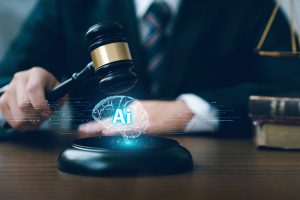 The rapid evolution of artificial intelligence (AI) is reshaping the world through new trends, regulations, and shifts in user behavior. While AI offers numerous benefits, it also introduces significant risks, particularly concerning accuracy, accountability, data privacy, and security. By proactively implementing mitigation strategies, businesses can harness AI’s potential while protecting their operations and reputation. Below, we explore key considerations for deploying AI across business processes while minimizing legal and regulatory risks.
The rapid evolution of artificial intelligence (AI) is reshaping the world through new trends, regulations, and shifts in user behavior. While AI offers numerous benefits, it also introduces significant risks, particularly concerning accuracy, accountability, data privacy, and security. By proactively implementing mitigation strategies, businesses can harness AI’s potential while protecting their operations and reputation. Below, we explore key considerations for deploying AI across business processes while minimizing legal and regulatory risks.
AI Accuracy and Accountability
A major obstacle to fully realizing AI’s capabilities is concerns about its accuracy and accountability. The core of this issue lies in the quality and quantity of the data used to train AI models. The accuracy of AI models directly reflects the data sets they are trained on. If these data sets are biased or inaccurate, the resulting algorithms can perpetuate hidden discrimination against certain groups. This lack of transparency raises questions about the reliability of the output data, which can be misleading, biased, or incorrect.
 Business Lawyers Blog
Business Lawyers Blog

